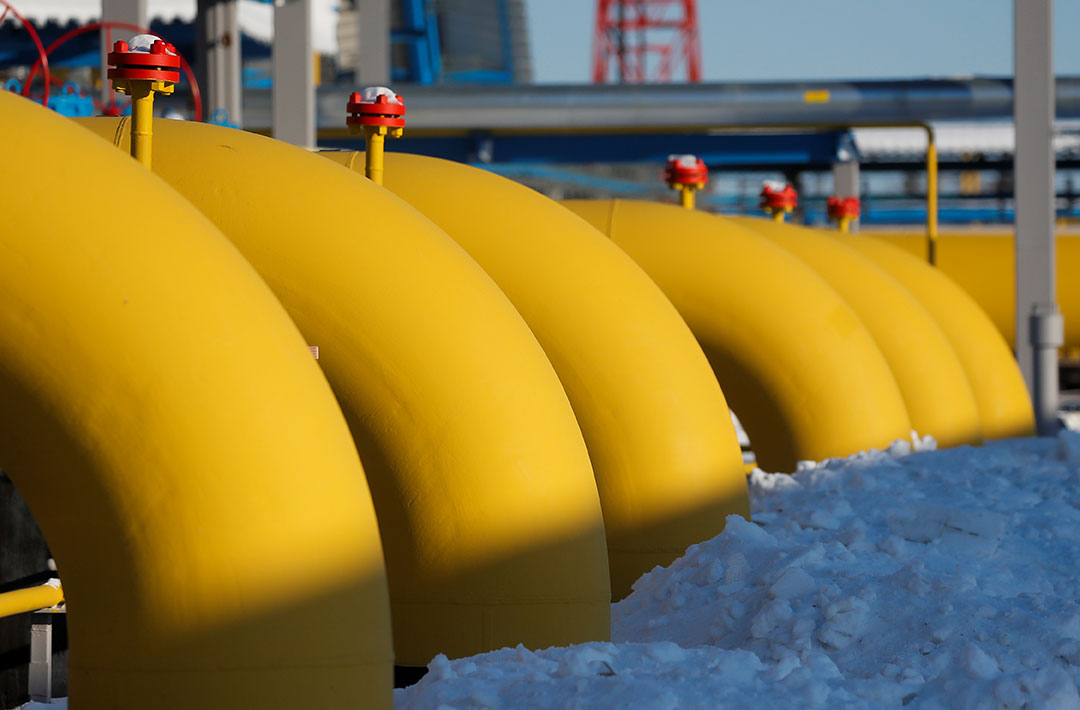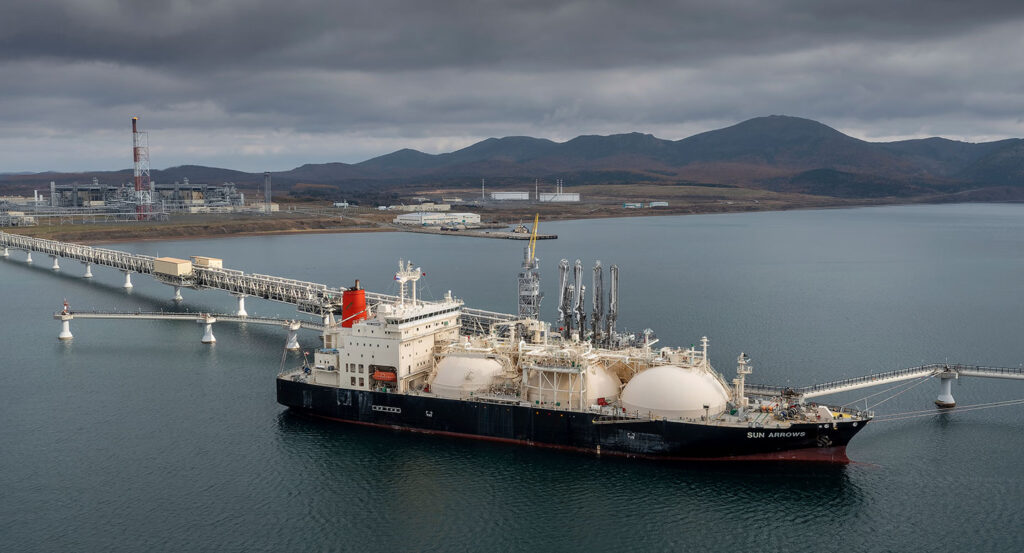The European Union (EU) plans to ban the import of Russian liquefied natural gas (LNG) a year earlier than planned, EU officials said in announcing another package of sanctions against Moscow for its war against Ukraine. “It is time to turn off the tap,” European Commission President Ursula von der Leyen said.
“Russia’s war economy is sustained by revenues from fossil fuels. We want to cut these revenues,” von der Leyen said September 19, 2025, as she announced the proposal, which requires unanimous approval from EU governments. “So we are banning imports of Russian LNG into European markets.”
European Commission Vice President and foreign policy chief Kaja Kallas said on X that the EU’s 19th package of sanctions aimed “to speed up the phase-out of Russian liquefied natural gas (to be complete) by 1 Jan 2027.” The previous EU target date to halt Russian LNG imports was January 1, 2028, but the United States has been pressuring the European nations to move faster.

EU imports of Russian LNG have dropped from 22% in the first quarter of 2021 to 14% in the second quarter of 2025, according to Eurostat, the European Commission’s statistical office. Belgium, France, the Netherlands and Spain import Russian LNG. Bulgaria, Hungary and Slovakia import Russian gas that is piped via TurkStream, a pipeline running from Russia to Turkey.
In addition to banning Russian LNG in 2027, the sanctions plan would target more of Russia’s shadow tanker fleet and state oil companies. An additional 118 Russian vessels would be sanctioned; more than 560 vessels are now listed under EU sanctions, von der Leyen said. Russian oil companies Rosneft and Gazprom Neft face a full transaction ban under the proposal. The EU already lowered its price cap on Russian crude oil to $47.60 a barrel on September 3, down from a $60 cap instituted in December 2022. Trade restrictions also would be placed on refineries, oil traders and petrochemical companies in third countries, or those who benefit from Russian oil and gas exports, including China.
The sanctions proposal also aims to seal off financial loopholes that Russia uses to circumvent sanctions. More banks in Russia and in central Asia would face transaction bans.
“Unfortunately, over the past month, Russia has shown the full extent of its contempt for diplomacy and international law,” von der Leyen said, citing massive drone and missile attacks against Ukrainian homes and government buildings. “In the last two weeks, Russian Shahed drones have violated our union’s airspace in both Poland and Romania. These are not the actions of someone who wants peace.”
Von der Leyen said the EU and its 27 member states were ready for what lies ahead. “We are prepared for this,” she said. “We have been saving energy, diversifying supplies and investing in low-carbon sources of energy like never before. Today, these efforts pay off. … This is Russia’s war, and the perpetrator must pay for it.”

